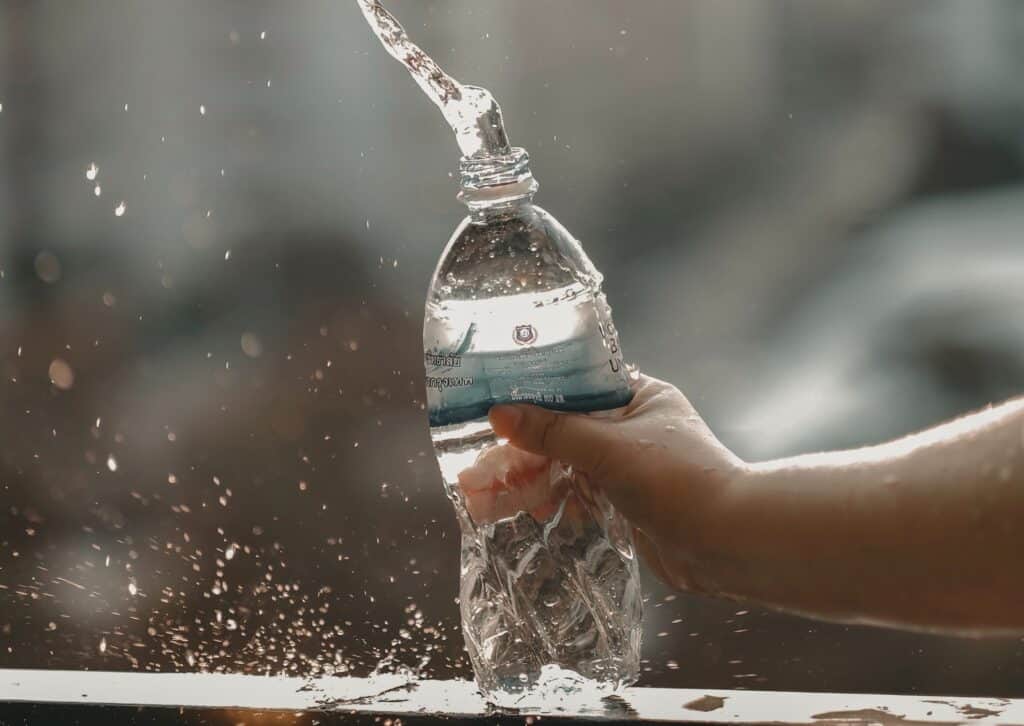
Pre-workout supplements have become a mainstay among fitness fanatics looking for an extra boost of energy, focus, and endurance during workouts. Nowadays people may buy a pre-workout before they buy supplement staples like protein powders or vitamins.
However, there is often concern about their effects on hydration, with some worrying that they may cause dehydration due to the diuretic properties of certain ingredients.
Hydration is a critical component of exercise that is often overlooked. It plays a vital role in regulating body temperature, driving nutrients to cells, and removing waste products from the body.
During exercise, our bodies generate heat, and sweating is one of the mechanisms used to cool down. Sweating results in the loss of fluids, and if these fluids are not replenished, dehydration can occur.
Even if you’re only lifting, which typically doesn’t result in massive amounts of sweating, maintaining hydration is critical.
Dehydration during exercise is not something you want to have to deal with during exercise. The slightest bit of dehydration can have a dramatic effect on your workout and athletic performance. Without enough water in the body, muscles may cramp, and the heart may have to work harder to pump blood.
Furthermore, dehydration can impair cognitive function, making it more difficult to concentrate and stay focused during exercise. This can reduce mind-muscle connection and negatively impact exercise technique.
It can also lead to electrolyte loss or imbalance. Sweat is mostly made up of sodium. However, you will also lose other electrolytes like potassium and magnesium.
All electrolytes play an important role in exercise. Sodium and potassium are important for cramping, while magnesium is responsible for a number of internal processes, including muscle contraction.
Luckily, dehydration is not a major concern when it comes to pre-workout supplementation. Caffeine is a common ingredient in pre-workout formulas. While there is a diuretic component to caffeine, it is so minor that it’s unlikely to have any effect on hydration. In fact, the water you mix with the pre-workout is probably enough to offset the diuretic effect.
The Diuretic Properties of Caffeine
One of the main concerns about pre-workout supplements is their caffeine content, and the common belief that caffeine is a diuretic that can lead to dehydration. While caffeine does have some mild diuretic properties, recent research suggests that it is not as significant as previously believed.
As for its diuretic properties, caffeine can increase urine production, but the effect is relatively mild and does not necessarily lead to significant fluid loss. In fact, recent studies have shown that moderate caffeine intake does not result in dehydration in individuals who are accustomed to it.
Overall, while caffeine does have some mild diuretic properties, the amount typically found in pre-workout supplements is unlikely to cause significant fluid loss or dehydration in most people.

Everyone will have a different tolerance to caffeine and stimulants in general. While caffeine may not have a major effect on hydration, it’s important to assess your tolerance before diving into multiple scoops of a pre-workout.
If you are overly concerned about the diuretic properties of caffeine, simply dilute the pre-workout by mixing it with more water.
Most labels recommend mixing a scoop of pre-workout with 6-8 ounces of water. Personally, I mix pre-workout in 12-16 ounces for extra hydration, especially when training early in the morning. In addition, pre-workout flavoring is so potent nowadays that the flavor in 6-8 ounces of water would be too strong.
Does Pre-Workout Cause Water Retention
Many people wonder whether pre-workout supplements can cause water retention, which is the buildup of excess fluids in the body. One ingredient commonly found in pre-workout supplements, creatine, is known to increase water retention in the muscles.
Creatine is a naturally occurring compound that is found in meat and fish, although much of it is lost after cooking. It plays a key role in providing energy to muscles during exercise. Creatine draws water into the muscle, making it larger and more anabolic.
While this increased water retention may cause some initial weight gain, research suggests that it does not necessarily lead to dehydration or negative health effects. If anything, it would help to hydrate muscle. Creatine supplementation has been shown to improve strength, increase muscle size, and fuel short-burst activity.
It is worth noting that not all pre-workout supplements contain creatine, and the amount found in those that do can vary. In fact, with the recent price increase in creatine, you may see companies begin to omit it from their supplements.
The standard dose to see a beneficial effect from creatine is 3-5 grams. While some pre-workouts explicitly list all ingredients, others have proprietary blends which leave consumers unsure of what exactly is in there.
In any case, it’s unlikely that a pre-workout would contain more creatine than necessary. But take note that creatine must be taken in adequate doses consistently over time. Creatine does not have an acute effect, it must build up in the body.
